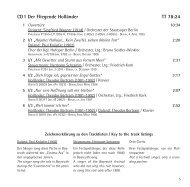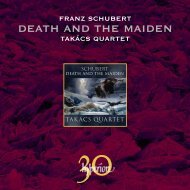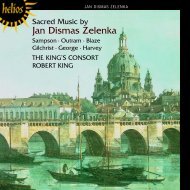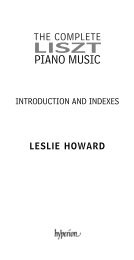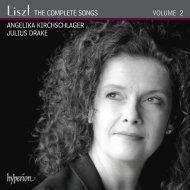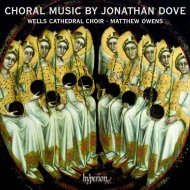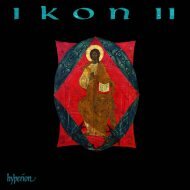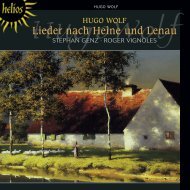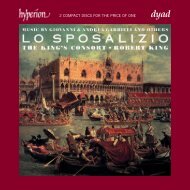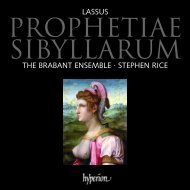Mass for Notre Dame - Abeille Musique
Mass for Notre Dame - Abeille Musique
Mass for Notre Dame - Abeille Musique
Create successful ePaper yourself
Turn your PDF publications into a flip-book with our unique Google optimized e-Paper software.
THE CHOIR OF TRINITY COLLEGE, CAMBRIDGE · STEPHEN LAYTON<br />
BRIGGS<br />
<strong>Mass</strong> <strong>for</strong> <strong>Notre</strong> <strong>Dame</strong>
I<br />
T IS FAIR TO SAY THAT DAVID BRIGGS is probably the<br />
only person in the world—at least outside France—<br />
<strong>for</strong> whom, at the age of just nine, the death of Marcel<br />
Dupré was a major event. Other nine-year-olds, back<br />
in 1971, might have registered the deaths of Nikita<br />
Khruschchev and Ogden Nash, or more mainstream<br />
musicians such as Igor Stravinsky, Jim Morrison and Louis<br />
Armstrong. But the passing of one of French music’s<br />
legendary organist-improviser-composers would surely<br />
have passed every other single-digit youth by.<br />
Improvising at the keyboard—and, by association, that<br />
very special <strong>for</strong>m of keyboard improvising at the console<br />
of a French electro-pneumatic organ—is in Briggs’ bloodstream.<br />
His grandfather, Lawrence Briggs, was a wellknown<br />
liturgical improviser in Birmingham, where he was<br />
Organist of St Jude’s Church on Hill Street <strong>for</strong> over <strong>for</strong>ty<br />
years. ‘I always loved to improvise, since I was six years<br />
old, and I remember very well the day Marcel Dupré died’,<br />
David Briggs remarks. ‘And nowadays, hearing famous<br />
improvisers like Olivier Latry, Philippe Lefebvre, Pierre<br />
Pincemaille, Jean Guillou and Daniel Roth is a source of<br />
endless stimulation and excitement.’<br />
In the same year as Dupré’s death, Briggs encountered<br />
another huge musical presence on the Parisian scene:<br />
Pierre Cochereau (1924–1984), Organist Titulaire at<br />
<strong>Notre</strong>-<strong>Dame</strong> Cathedral from 1955 until his death. ‘I first<br />
became addicted to Cochereau’s sound-world as a nineyear-old<br />
chorister at Birmingham Cathedral, when John<br />
Pryer (the Sub-Organist, himself a brilliant improviser)<br />
lent me an LP of the maître improvising a set of Variations<br />
on Alouette, gentille Alouette. I heard Cochereau three<br />
times at <strong>Notre</strong>-<strong>Dame</strong> in the early eighties, and each<br />
occasion was a life-changing experience.’<br />
A few years be<strong>for</strong>e Briggs’ own close encounters with<br />
Cochereau, Stephen Layton was also in <strong>Notre</strong>-<strong>Dame</strong> being<br />
transported by the cataclysmic blast of Cochereau’s<br />
2<br />
playing. As a ten-year old chorister in Winchester Cathedral<br />
Choir, he vividly remembers Cochereau anointing their<br />
presence at High <strong>Mass</strong> with a gradually climaxing, throbbing<br />
processional. Those moments in Paris, spine-tingling<br />
and affirming, set something off <strong>for</strong> Layton too. Both he<br />
and Briggs ended up, many hundreds of hours’ organ<br />
practice later, at King’s College, Cambridge; Briggs was<br />
Organ Scholar from 1981 to 1984, Layton from 1985 to<br />
1988 (with Richard Farnes, now Music Director at Opera<br />
North, as the link-man from 1983 to 1986).<br />
Layton, since, has focused on conducting (though he<br />
still ascends to the organ loft once in a while, always keen<br />
to improvise). Briggs, though starting out post-Cambridge<br />
in the English cathedral Kapellmeister world, now<br />
immerses himself totally in the life of a virtuoso organistcomposer.<br />
And although he now lives in the USA, he may<br />
as well have a French passport. Rather like an Olympic ski<br />
champion from the United Arab Emirates, or a prize bullfighter<br />
from the vegetarian heartlands of Totnes, Briggs<br />
has broken through robust barriers—infiltrating another<br />
culture to the point that he instinctively inhabits it. But<br />
amidst that incense-smoked air of the French liturgical<br />
organ tradition, he brings to it, significantly, the complementary<br />
riches of a very different, equally strong tradition<br />
from the other side of La Manche. How extraordinary<br />
that socio-historical events across many centuries (Re<strong>for</strong>mations,<br />
Revolutions) conspired to create such different<br />
musical cultures separated by just twenty-one miles of sea.<br />
With its blend of the English liturgical choral tradition and<br />
the unique role the organ plays in French liturgy as ersatz<br />
choir, this disc is a musical Entente Cordiale indeed.<br />
To inhabit a musical world as much as Briggs does<br />
requires what he himself acknowledges as ‘addiction’. In<br />
1984, newly arrived as Assistant Organist at Here<strong>for</strong>d<br />
Cathedral and taking lessons from Jean Langlais, he started<br />
transcribing a recording of Cochereau’s improvisations
from Christmas Eve 1968. This was ‘primarily with the<br />
intent of sharpening my own aural senses, as well as<br />
examining in some detail the ravishing and generous<br />
harmonic and emotional language which was (and is)<br />
unique to Cochereau. I didn’t realize at the time that<br />
this was to be the beginning of an extended eleven-year<br />
process, on an almost daily basis. It was certainly a labour<br />
of love, and it’s not something you get quicker at—I<br />
worked out that the average time to transcribe one<br />
minute’s music was four hours.’ He should compare notes<br />
with two other kinds of musical transcribers of our time:<br />
on the one hand, the keyboardists of Progressive Rock<br />
tribute bands (notably, facsimiles of Genesis and Yes),<br />
whose ambitious, fiddly roles <strong>for</strong> Hammond organ and<br />
synthesizer have to be picked out, note by note, from<br />
original recordings; and on the other, the re-creators of<br />
film soundtracks whose original manuscripts have been<br />
lost or discarded. The most heroic of these is the<br />
conductor John Wilson, who has brought back to life<br />
several sumptuous MGM film scores in the last decade<br />
(the originals’ somewhat tragic destiny was as landfill <strong>for</strong><br />
a Cali<strong>for</strong>nian golf course). Like Briggs, Wilson knows how<br />
laborious this transcription process can be: he once spent<br />
four hours deciphering the pitches and orchestration of a<br />
single bar from The Wizard of Oz.<br />
The Messe pour <strong>Notre</strong>-<strong>Dame</strong> on this disc is a fusion<br />
of Cochereau transcription and Briggs’ own compositional<br />
voice. ‘About 15% is based on some wonderful Cochereau<br />
improvisations <strong>for</strong> the Feast of the Assumption in 1962’,<br />
he says. ‘I transcribed them from an unedited reel-to-reel<br />
recording made in <strong>Notre</strong>-<strong>Dame</strong> that day by Fred Tulan, a<br />
well-known American organist and great friend of Pierre.<br />
You can hear—in the ‘Domine Deus’ section of the Gloria<br />
and introductions to the Sanctus, Benedictus and Agnus<br />
Dei—Cochereau’s incredible invention and ravishing<br />
harmonies. I’ve tried to make the link into my own music<br />
3<br />
as imperceptible as possible, but it is <strong>for</strong> others to say<br />
if it’s successful or not!’ Additionally, this recording of<br />
the <strong>Mass</strong> intersperses four movements of David Briggs’<br />
own improvisations—the Introït, Offertoire, Élévation and<br />
Sortie. Very much aligned with French liturgical practice,<br />
this is Briggs captured in the heat of the improvised,<br />
unedited moment—in some cases per<strong>for</strong>ming with<br />
suitably awestruck members of the Trinity Choir bearing<br />
witness in the organ loft.<br />
There are ‘ravishing harmonies’ aplenty in Briggs’<br />
notated music—the exultant, swelling warmth of the Kyrie<br />
sections, the stained-glass shuddering ecstasy of the<br />
Hosanna conclusion, the colour-drenched invention of the<br />
stand-alone organ improvisations. This Messe pour <strong>Notre</strong>-<br />
<strong>Dame</strong> was indeed conceived specifically <strong>for</strong> the great<br />
Parisian cathedral and its mighty 1868 Cavaillé-Coll<br />
organ. The choir it was written <strong>for</strong> was an English one,<br />
however—commissioned by Neil Shepherd and the choir<br />
of Keynsham Parish Church, near Bristol, they per<strong>for</strong>med<br />
it with Briggs in <strong>Notre</strong>-<strong>Dame</strong> on 28 July 2002. What a<br />
magnificent gift to that most endangered musical species<br />
of the early twenty-first century, the English Parish Church<br />
Choir.<br />
In February 2002, when the <strong>Mass</strong> was composed,<br />
Briggs’ musical home and employer was Gloucester<br />
Cathedral (though it was a period of transition, swapping<br />
roles with his Assistant Organist and Choirmaster, in<br />
preparation <strong>for</strong> his subsequent freelance existence as<br />
organist and composer). Gloucester’s organ is unique in<br />
English cathedrals, as its reeds are voiced in the French<br />
classical style. This was the result of major rebuilds of the<br />
1660 Thomas Harris organ by Hill, Norman and Beard<br />
(1971) and Nicholson (1999). Controversial at the time,<br />
this Gallic voicing and lower, Continental European wind<br />
pressure ensured a snappy start to the note and an ‘openvowelled’<br />
tone. Free and brassy, with that gloriously
flatulent, fairground sound at full blast, it is an instrument<br />
à la française that is uniquely apt in Britain <strong>for</strong> this<br />
recording.<br />
For Briggs, ‘composition is the same as slowed-down<br />
improvisation—it comes from exactly the same place,<br />
although of course you have the opportunity to hone and<br />
refine your thoughts’. In the same way, improvisation is<br />
composition in real time: a captured instant of creativity,<br />
and in the hands of masters—be they Cochereau, Briggs,<br />
Jimi Hendrix, Mozart impersonator Robert Levin or any<br />
jazzer you can think of—a jaw-droppingly wonderful<br />
firing of split-second impulses from brain to fingers and<br />
feet. Briggs’ improvisations on this recording—be<strong>for</strong>e, in<br />
the midst of and following the <strong>Mass</strong> movements, and as<br />
responses to the choral plainchant of the Te Deum—<br />
display a masterful range of mood and colour. There is<br />
delicacy, reflection and repose, alongside mighty bombast<br />
and truly gothic ‘shock and awe’ that humble an American<br />
president’s bellicose use of the words.<br />
Just as the <strong>Mass</strong> takes its lead from settings by Vierne,<br />
Widor and Langlais, immediate comparisons with<br />
Cochereau’s teacher Duruflé are tempting in the setting<br />
of Ubi caritas et amor. Briggs takes the plainchant in<br />
different directions harmonically, however, and avoids a<br />
mere refurbishment of the Duruflé setting. This a cappella<br />
motet, like the <strong>Mass</strong>, was composed <strong>for</strong> a Bristol<br />
church—Bristol City Church—and first heard too in<br />
<strong>Notre</strong>-<strong>Dame</strong> de Paris, at Grand-Messe on 30 July 2006.<br />
4<br />
A few days earlier, in Devon’s Buckfast Abbey, the Exon<br />
Singers and conductor Matthew Owens per<strong>for</strong>med Briggs’<br />
setting of Psalm 121 <strong>for</strong> the first time on a BBC Radio 3<br />
broadcast of Choral Evensong. Without the Frenchified<br />
flavours of Briggs’ organ-writing to underpin this work,<br />
I will lift up mine eyes is a more overtly English piece,<br />
very much in the Anglican mould and sans ail.<br />
Perhaps because the evening canticles are so intrinsic<br />
to that Anglican choral tradition, Briggs’ Trinity Magnificat<br />
and Nunc dimittis—even with organ accompaniment—<br />
feel closer to Dover than to Calais. With a fine sense of<br />
architecture and alternations of choral texture, this pairing<br />
is the most recent work here—composed <strong>for</strong> the <strong>for</strong>ces<br />
on this recording in 2008.<br />
Briggs’ musical ocean crossing is the English Channel,<br />
but <strong>for</strong> several years now the Atlantic <strong>for</strong>ms the divide<br />
between his earlier British life and his current residence<br />
in Boston, <strong>Mass</strong>achusetts. The final work on this disc<br />
was composed <strong>for</strong> that remarkable island of musical<br />
Anglicanism amidst the bustling commerce of Manhattan.<br />
St Thomas Church, Fifth Avenue, sustains a fine choir of<br />
boys and men, and it was <strong>for</strong> these <strong>for</strong>ces and their<br />
conductor John Scott that Briggs wrote O Lord, support us<br />
in 2005. Commissioned by the then Assistant Organist<br />
Jeremy Bruns <strong>for</strong> his wife Kathy, this setting of an exquisite<br />
evening collect from the Book of Common Prayer is a<br />
tender wash of unashamed loveliness.<br />
MEURIG BOWEN © 2010<br />
If you have enjoyed this recording perhaps you would like a catalogue listing the many others available on the Hyperion and Helios labels. If so,<br />
please write to Hyperion Records Ltd, PO Box 25, London SE9 1AX, England, or email us at info@hyperion-records.co.uk, and we will be pleased to<br />
send you one free of charge.<br />
The Hyperion catalogue can also be accessed on the Internet at www.hyperion-records.co.uk
2 Kyrie eleison. Christe eleison. Kyrie eleison. Lord, have mercy. Christ, have mercy. Lord, have mercy.<br />
3 Gloria in excelsis Deo Glory to God in the highest<br />
et in terra pax hominibus bonae voluntatis. and on earth peace to men of goodwill.<br />
Laudamus te. Benedicimus te. We praise you. We bless you.<br />
Adoramus te. Glorificamus te. We worship you. We glorify you.<br />
Gratias agimus tibi propter magnam gloriam tuam. We give thanks to you <strong>for</strong> your great glory.<br />
Domine Deus, Rex caelestis, Deus Pater omnipotens, Lord God, heavenly King, almighty God the Father,<br />
Domine Fili unigenite, Jesu Christe. O Lord, the only begotten Son, Jesus Christ.<br />
Domine Deus, Agnus Dei, Filius Patris. Lord God, Lamb of God, Son of the Father.<br />
Qui tollis peccata mundi, miserere nobis. You take away the sins of the world, have mercy on us.<br />
Qui tollis peccata mundi, suscipe deprecationem. You take away the sins of the world, receive our prayer.<br />
Qui sedes ad dexteram Patris, miserere nobis. You sit at the right hand of the Father, have mercy on us.<br />
Quoniam tu solus sanctus. Tu solus Dominus. For you only are holy. You only are the Lord.<br />
Tu solus altissimus, Jesu Christe. You only are the most high, Jesus Christ.<br />
Cum Sancto Spiritu With the Holy Spirit<br />
in gloria Dei Patris. Amen. in the glory of God the Father. Amen.<br />
5 Ubi caritas et amor, Deus ibi est. Where charity and love are, there is God.<br />
Congregavit nos in unum Christi amor. The love of Christ has brought us together into one.<br />
Exultemus et in ipso iucundemur. Let us rejoice and let us be glad in that love itself.<br />
Timeamus et amemus Deum vivum. Let us fear and love the living God.<br />
Et ex corde diligamus nos sincero. And let us love from a pure heart.<br />
Amen. Amen.<br />
6 Sanctus, sanctus, Dominus Deus Sabaoth. Holy, holy, Lord God of power and might.<br />
Pleni sunt caeli et terra gloria tua. Heaven and earth are full of your glory.<br />
Osanna in excelsis. Hosanna in the highest.<br />
7 Benedictus qui venit in nomine Domini. Blessed is he who comes in the name of the Lord.<br />
Osanna in excelsis. Hosanna in the highest.<br />
9 Agnus Dei, qui tollis peccata mundi, Lamb of God, you take away the sins of the world,<br />
miserere nobis. have mercy on us.<br />
Agnus Dei, qui tollis peccata mundi, Lamb of God, you take away the sins of the world,<br />
miserere nobis. have mercy on us.<br />
Agnus Dei, qui tollis peccata mundi, Lamb of God, you take away the sins of the world,<br />
dona nobis pacem. grant us peace.<br />
5
m I will lift up mine eyes unto the hills:<br />
from whence cometh my help.<br />
My help cometh even from the Lord:<br />
who hath made heav’n and earth.<br />
He will not suffer thy foot to be moved:<br />
and he that keepeth thee will not sleep.<br />
Behold, he that keepeth Israel:<br />
shall neither slumber nor sleep.<br />
The Lord himself is thy keeper:<br />
the Lord is thy defence upon thy right hand;<br />
so that the sun shall not burn thee by day;<br />
neither the moon by night.<br />
The Lord shall preserve thee from all evil:<br />
yea, it is even he that shall keep thy soul.<br />
The Lord shall preserve thy going out and thy coming in:<br />
from this time <strong>for</strong>th and <strong>for</strong> evermore.<br />
PSALM 121<br />
bn Magnificat<br />
My soul doth magnify the Lord. And my spirit hath rejoiced in God my saviour. For he hath regarded<br />
the lowliness of his handmaiden: <strong>for</strong> behold, from hence<strong>for</strong>th all generations shall call me blessed.<br />
For he that is mighty hath magnified me: and holy is his name. And his mercy is on them that fear<br />
him throughout all generations. He hath showed strength with his arm: he hath scattered the proud<br />
in the imagination of their hearts. He hath put down the mighty from their seat, and hath exalted the<br />
humble and meek. He hath filled the hungry with good things: and the rich he hath sent empty away.<br />
He remembering his mercy hath holpen his servant Israel. As he promised to our <strong>for</strong>efathers,<br />
Abraham and his seed <strong>for</strong> ever.<br />
Glory be to the Father, and to the Son, and to the Holy Ghost. As it was in the beginning, is now,<br />
and ever shall be, world without end. Amen.<br />
bo Nunc dimittis<br />
Lord, now lettest thou thy servant depart in peace, according to thy word. For mine eyes have seen thy<br />
salvation, which thou hast prepared be<strong>for</strong>e the face of all people. To be a light to lighten the gentiles,<br />
and to be the glory of thy people Israel.<br />
Glory be to the Father, and to the Son, and to the Holy Ghost. As it was in the beginning, is now,<br />
and ever shall be, world without end. Amen.<br />
6
p Te Deum laudamus, te Dominum confitemur … We praise you, God, we acknowledge you as Lord …<br />
Tibi omnes angeli: tibi caeli et universae potestates … To you all angels: to you the heavens and all powers …<br />
Sanctus, sanctus … Holy, holy …<br />
Pleni sunt caeli et terra maiestatis gloriae tuae … The heavens and the earth are full of the majesty of your glory …<br />
Te prophetarum laudabilis numerus … The worthy group of prophets …<br />
Te per orbem terrarum sancta confitetur Ecclesia … Throughout the circle of lands the holy church acknowledges you …<br />
venerandum tuum verum et unicum Filium … your venerated, true and only Son …<br />
Tu, rex gloriae Christe … You are the king of glory, Christ …<br />
Tu, ad liberandum suscepturus hominem, Setting out to save mankind<br />
non horruisti virginis uterum … you did not despise a virgin’s womb …<br />
Tu ad dexteram Dei sedes, in gloria Patris … You sit at the right hand of God, in the glory of the Father …<br />
Te ergo, quaesumus, tuis famulis subveni, There<strong>for</strong>e, we beg you, help your servants,<br />
quos pretioso sanguine redemisti … whom with precious blood you redeemed …<br />
Salvum fac populum tuum, Domine, Make your people safe, Lord,<br />
et benedic hereditati tuae … and bless your inheritance …<br />
Per singulos dies benedicimus te … Every single day we bless you …<br />
Dignare, Domine, die isto, sine peccato nos custodire … Consider it worthwhile, Lord, on that day to keep us without sin …<br />
Fiat misericordia tua Domine super nos, Let your mercy, Lord, be upon us,<br />
quemadmodum speravimus in te.<br />
br O Lord, support us all the day long,<br />
until the shadows lengthen,<br />
and the evening comes,<br />
and the busy world is hushed,<br />
and the fever of life is over,<br />
and our work is done.<br />
Then in thy mercy,<br />
grant us a safe lodging and a holy rest,<br />
and peace at the last.<br />
Amen.<br />
inasmuch as we placed our hope in you.<br />
THE CHOIR OF TRINITY COLLEGE, CAMBRIDGE<br />
soprano Zoë Brown, Lucy Cronin, Jessica Dandy, Emily Dickens, Natasha Goldberg, Alison Hill, Rosalyn Hindmarch,<br />
Kate Ludlow, Claudia Parkes, Margaret Walker, Catherine White<br />
alto Catherine Bradley, Madeline Claire de Berrié, Ruth Gibbins, John Lattimore, Christopher Lowrey, Fiona Mackay,<br />
Catherine Suart, Emily Weal, Lizzie Wheeler<br />
tenor Gwilym Bowen, Tom Cockett, Pierre Dechant, Gwilym Evans, Alexander Hurst, David Knappett, Andrew MacFarlane, Justin Meyer<br />
bass Nicholas Chapman, Julian Chou-Lambert, Timothy Dickinson, Liam Dunachie, Luke Fisher, Guy Hayward, Edmund Irwin-Singer,<br />
Christopher Law, Matthew Middleton-Jones, Christopher Stark, Rupert Compston (organ scholar), Michael Waldron (organ scholar)<br />
7
© Tony Hickey
GLOUCESTER CATHEDRAL ORGAN<br />
Pedal<br />
Flute 16'<br />
Principal 16'<br />
Subbass 16'<br />
Octave 8'<br />
Stopped Flute 8'<br />
Choral Bass 4'<br />
Open Flute 2'<br />
Quint 10 2 / 3' Tierce 6 2 / 5' Septieme 4 4 / 7' Mixture IV ranks<br />
Bombarde 32'<br />
Bombarde 16'<br />
Trumpet 8'<br />
Shawm 4'<br />
Great<br />
Gedecktpommer 16'<br />
Open Diapason 8'<br />
Open Diapason 8'<br />
Spitzflute 8'<br />
Bourdon 8'<br />
Prestant 4'<br />
Octave 4'<br />
Stopped Flute 4'<br />
Flageolet 2'<br />
Quartane II ranks<br />
Mixture IV–VI ranks<br />
Cornet IV ranks (mid C)<br />
Posaune 16'<br />
Trumpet 8'<br />
Clarion 4'<br />
Swell<br />
Chimney Flute 8'<br />
Salicional 8'<br />
Celeste 8'<br />
Principal 4'<br />
Open Flute 4'<br />
Gemshorn 2'<br />
Nazard 2 2 / 3' Tierce 1 3 / 5' Mixture IV ranks<br />
Cimbel III ranks<br />
Fagotto 16'<br />
Trumpet 8'<br />
Hautboy 8'<br />
Vox Humana 8'<br />
Tremulant<br />
Choir<br />
Stopped Diapason 8'<br />
Principal 4'<br />
Chimney Flute 4'<br />
Fifteenth 2'<br />
Sesquialtera II ranks<br />
Nazard 1 1 / 3' Mixture III ranks<br />
Cremona 8'<br />
Tremulant<br />
West Positive<br />
Gedecktpommer 8'<br />
Spitzflute 4'<br />
Doublette 2'<br />
Nazard 2 2 / 3' Tierce 1 3 / 5' Septieme 1 1 / 7' Cimbel III ranks<br />
Tremulant<br />
Couplers<br />
West Positive to Great*<br />
Swell to Choir<br />
West Positive to Pedal*<br />
Choir to Pedal*<br />
Swell Sub Octave<br />
Swell to Great*<br />
West Positive to Choir<br />
Swell to Pedal*<br />
West Great flues<br />
Sub Octave<br />
Choir to Great*<br />
Great to Pedal*<br />
9<br />
Transfers<br />
Great reeds on Man IV<br />
West Great flues on Man IV<br />
Combination Couplers<br />
Great & Pedal Combinations coupled<br />
Generals on Swell toe pisons<br />
Pedal divide<br />
Below adjustable dividing point:<br />
All pedal stops and couplers<br />
Above adjustable dividing point:<br />
Four illuminated controls<br />
(Ch/Great/Swell/West Positive)<br />
Tremulants<br />
All are fully adjustable<br />
Pistons<br />
Reversibles to knobs marked *<br />
Four Stepper pistons (2+ & 2-)<br />
(duplicated by foot-pistons)<br />
Four pistons to West Positive<br />
Eight pistons to Swell<br />
Eight pistons to Great<br />
Six pistons to Choir<br />
Eight toe pistons to Pedal<br />
Eight toe pistons duplicating Swell<br />
Eight General thumb pistons<br />
General Cancel<br />
Setter
© Benjamin Ealovega<br />
THE CHOIR OF TRINITY COLLEGE, CAMBRIDGE<br />
The Choir of Trinity College, Cambridge has established<br />
itself as one of the leading mixed-voice choirs in the UK.<br />
The Choir comprises around thirty choral scholars, all of<br />
whom are ordinarily undergraduates of the College, under<br />
Director of Music Stephen Layton.<br />
The College’s long and distinguished choral tradition<br />
dates back to the fourteenth century, when <strong>for</strong>mer Chapel<br />
Royal choristers studied in King’s Hall, which later became<br />
part of Trinity College. The Choir’s main focus during term<br />
is the singing of the liturgy in the College Chapel, exploring<br />
a wide-ranging repertoire drawn from both Catholic and<br />
Protestant traditions. Outside term the Choir enjoys a<br />
10<br />
programme of high-profile per<strong>for</strong>mances and recordings,<br />
recently including Poulenc’s Gloria with Britten Sinfonia<br />
in Norwich Cathedral (and recorded on CDA67623), and<br />
Handel’s Dettingen Te Deum and ‘Chandos anthems’ with<br />
the Academy of Ancient Music in London and Cambridge<br />
(and recorded on, respectively, CDA67678 and CDA67737).<br />
The Choir has also recorded a cappella works by Pawel /<br />
L / ukaszewski (CDA67639) and by Praulin, š, Einfelde, Sisask<br />
and Miškinis (CDA67747).<br />
An ambitious programme of tours has taken the Choir<br />
to destinations including Europe, the USA, Canada,<br />
southern Africa, Japan, Taiwan, Hong Kong and Peru.<br />
STEPHEN LAYTON<br />
Stephen Layton’s discography on Hyperion ranges from<br />
Handel with original instruments to Bruckner and<br />
Poulenc, Pärt and Tavener, L / ukaszewski and Whitacre. A<br />
champion of new music, Layton has given premieres in<br />
collaboration with many composers. He has received the<br />
Gramophone Award in the UK, the Diapason d’Or in<br />
France and two Grammy nominations in the USA.<br />
Layton guest conducts widely, with among others the<br />
Philadelphia Orchestra, Minnesota Orchestra, London<br />
Philharmonic Orchestra, Royal Scottish National<br />
Orchestra, Orchestra of the Age of Enlightenment,<br />
Academy of Ancient Music, English National Opera, Britten<br />
11<br />
Sinfonia and the English, Scottish, Irish and Australian<br />
chamber orchestras. Founder and Director of Polyphony,<br />
Layton is Chief Guest Conductor of the Danish Radio Choir<br />
and Music Director of Holst Singers, while also working<br />
with the Estonian Philharmonic Chamber Choir, the<br />
Latvian Radio Choir and the Polish Chamber Choir. He has<br />
been Director of Music at the Temple in London and Chief<br />
Conductor of the Netherlands Chamber Choir.<br />
In 2006 he was made a Fellow and Director of Music of<br />
Trinity College, Cambridge. In 2010 he succeeds the late<br />
Richard Hickox as Artistic Director and Principal<br />
Conductor of the City of London Sinfonia.
BRIGGS Messe pour <strong>Notre</strong>-<strong>Dame</strong><br />
D<br />
AVID BRIGGS fut probablement la seule personne<br />
au monde—du moins en dehors de la France—à<br />
avoir ressenti, à tout juste neuf ans, la mort de<br />
Marcel Dupré comme un événement majeur. En 1971, les<br />
jeunes de son âge retinrent peut-être les décès de Nikita<br />
Khrouchtchev, d’Ogden Nash ou de musiciens plus<br />
marquants comme Igor Stravinski, Jim Morrison et Louis<br />
Armstrong, mais aucun autre enfant de moins de dix ans<br />
ne dut se soucier de la mort d’un des légendaires<br />
organistes-improvisateurs-compositeurs français.<br />
L’improvisation au clavier—et, partant, cette <strong>for</strong>me<br />
très particulière d’improvisation pratiquée à la console<br />
d’un orgue électro-pneumatique français—, Briggs l’a<br />
dans le sang. Son grand-père, Lawrence Briggs, fut un<br />
célèbre improvisateur liturgique à Birmingham, où il tint<br />
l’orgue de Saint Jude’s Church (Hill Street) durant plus de<br />
quarante ans. « Depuis mes six ans, j’ai toujours adoré<br />
improviser, et je me rappelle très bien le jour où Marcel<br />
Dupré est mort », raconte David Briggs. « Et aujourd’hui,<br />
entendre de fameux improvisateurs comme Olivier Latry,<br />
Philippe Lefebvre, Pierre Pincemaille, Jean Guillou et<br />
Daniel Roth est une source de stimulation et d’exaltation<br />
inépuisables. »<br />
L’année même de la mort de Dupré, Briggs rencontra<br />
un autre géant de la scène parisienne : Pierre Cochereau<br />
(1924–1984), organiste titulaire de la cathédrale <strong>Notre</strong>-<br />
<strong>Dame</strong> de 1955 à sa mort. « Je suis devenu un mordu de<br />
l’univers sonore de Cochereau à neuf ans, quand j’étais<br />
choriste à la cathédrale de Birmingham et que John Pryer<br />
(le Sub-Organist, lui-même brillant improvisateur) me<br />
prêta un 33 tours du maître improvisant une série de<br />
Variations sur Alouette, gentille alouette. J’ai entendu<br />
Cochereau à <strong>Notre</strong>-<strong>Dame</strong> à trois reprises, au début des<br />
années 1980, et, à chaque fois, ce fut une expérience qui<br />
changea ma vie. »<br />
12<br />
Quelques années avant que Briggs ne rencontrât<br />
Cochereau, c’était Stephen Layton qui se trouvait à <strong>Notre</strong>-<br />
<strong>Dame</strong>, transporté par le rugissement cataclysmique du jeu<br />
de l’organiste. Il garde un vif souvenir de la manière dont<br />
Cochereau, à une grand-messe, consacra la présence<br />
du Winchester Cathedral Choir (Layton était alors un<br />
jeune choriste de dix ans) par un vibrant cantique<br />
processionnel, qui monta peu à peu en puissance. Ces<br />
moments passés à Paris, de ceux, déterminants, qui<br />
donnent le frisson, déclenchèrent aussi quelque chose<br />
chez Layton. Après avoir passé des centaines d’heures à<br />
s’exercer à l’orgue, Briggs et lui finirent au King’s College<br />
de Cambridge, où ils furent Organ Scholar (Briggs de 1981<br />
à 1984, Layton de 1985 à 1988, la transition de 1983<br />
à 1986 ayant été assurée par Richard Farnes, l’actuel<br />
directeur de l’Opera North).<br />
Layton, depuis, s’attache à diriger (même s’il grimpe<br />
encore de temps en temps à la tribune, toujours enchanté<br />
à l’idée d’improviser). Briggs, s’il commença son après-<br />
Cambridge dans l’univers des Kapellmeister de cathédrale<br />
anglais, est aujourd’hui tout entier plongé dans la vie d’un<br />
organiste-compositeur virtuose. Et, s’il vit désormais aux<br />
États-Unis, il a aussi un passeport français. Un peu<br />
comme un champion olympique de ski originaire des<br />
Émirats Arabes Unis, ou comme un torero professionnel<br />
tout droit venu du centre végétarien de Totnes, il a abattu<br />
de solides barrières, infiltrant une autre culture au point<br />
de lui appartenir d’instinct. Mais dans cette atmosphère,<br />
baignée d’encens, qui est celle de la tradition organistique<br />
liturgique française, il apporte, de manière significative,<br />
les richesses complémentaires d’une tradition très<br />
différente, mais tout aussi <strong>for</strong>te, venue de l’autre côté<br />
de la Manche. Il est d’ailleurs extraordinaire que des<br />
événements socio-historiques (Ré<strong>for</strong>mes, Révolutions)<br />
aient concouru durant de nombreux siècles à façonner
des cultures musicales aussi différentes, alors que seul<br />
un bras de mer d’une trentaine de kilomètres les sépare.<br />
Mariage entre la tradition chorale liturgique anglaise et le<br />
rôle unique—celui d’ersatz de chœur—de l’orgue dans<br />
la liturgie française, ce disque est vraiment une Entente<br />
cordiale musicale.<br />
Habiter un univers musical de manière aussi intense<br />
requiert, et Briggs le reconnaît, une certaine « addiction ».<br />
En 1984, fraîchement débarqué comme Assistant Organist<br />
à la cathédrale de Here<strong>for</strong>d tout en prenant des leçons<br />
auprès de Jean Langlais, il entreprit de transcrire un enregistrement<br />
des improvisations exécutées par Cochereau<br />
à la veille de Noël, en 1968. C’était « surtout pour aiguiser<br />
mes sens auditifs, et pour examiner un peu en détail le<br />
ravissant et généreux langage harmonico-émotionnel qui<br />
était (et demeure) propre à Cochereau. Je ne réalisais pas,<br />
alors, que c’était le début d’un vaste processus de onze<br />
ans, sur une base quasi quotidienne. Ce travail, je l’ai<br />
vraiment fait par plaisir, et impossible de l’accélérer—j’ai<br />
découvert qu’il me fallait en moyenne quatre heures pour<br />
transcrire une minute de musique ». Il devrait échanger<br />
ses impressions avec deux autres espèces de transcripteurs<br />
actuels : d’un côté, les claviéristes des groupes de<br />
rock progressif (à travers, notamment, les fac-similés de<br />
Genesis et de Yes), dont les ambitieux et délicats rôles<br />
dévolus à l’orgue Hammond et au synthétiseur doivent<br />
être relevés, note par note, à partir des enregistrements<br />
originaux ; de l’autre, les re-créateurs de bandes sonores<br />
de films dont les manuscrits originaux ont été perdus ou<br />
mis au rebut. Le plus héroïque d’entre eux est le chef<br />
d’orchestre John Wilson, qui a ramené à la vie plusieurs<br />
somptueuses musiques de film de la MGM au cours des<br />
dix dernières années (les originaux ont connu un destin<br />
quelque peu tragique—ils ont fini comme déchets,<br />
enfouis pour aménager un terrain de golf cali<strong>for</strong>nien).<br />
13 DAVID BRIGGS
Comme Briggs, Wilson sait combien le processus de<br />
transcription peut être laborieux : un jour, il passa quatre<br />
heures à déchiffrer les hauteurs de son et l’orchestration<br />
d’une seule mesure du Magicien d’Oz.<br />
Les sections de la Messe pour <strong>Notre</strong>-<strong>Dame</strong> figurant sur<br />
ce disque fusionnent une transcription de Cochereau et<br />
le style compositionnel de Briggs. « Environ 15% reposent<br />
sur de merveilleuses improvisations exécutées par<br />
Cochereau pour la fête de l’Assomption, en 1962 », déclara<br />
Briggs. « Je les ai transcrites à partir d’un enregistrement<br />
inédit, à bobines, réalisé à <strong>Notre</strong>-<strong>Dame</strong> ce jour-là par Fred<br />
Tulan, un célèbre organiste américain, grand ami de<br />
Pierre. On y entend—dans le « Domine Deus » du Gloria<br />
et dans les introductions du Sanctus, du Benedictus et<br />
de l’Agnus Dei—l’incroyable invention et les ravissantes<br />
harmonies de Cochereau. J’ai essayé de rendre la transition<br />
avec ma musique aussi imperceptible que possible,<br />
mais c’est aux autres de dire si c’est réussi ou non ! » Par<br />
ailleurs, cet enregistrement de la messe propose quatre<br />
mouvements improvisés par David Briggs—l’Introït,<br />
l’Offertoire, l’Élévation et la Sortie. Dans la droite ligne de<br />
la pratique liturgique française, Briggs est capturé en plein<br />
moment improvisé, non édité—il joue parfois avec,<br />
présents à la tribune de l’orgue, les membres, plutôt<br />
impressionnés, du Trinity Choir.<br />
Les « ravissantes harmonies » abondent dans la<br />
musique notée de Briggs—l’exultante chaleur qui enfle<br />
dans les sections du Kyrie, la vibrante extase prêcheuse<br />
de la conclusion-Hosanna, l’invention, toute en couleurs,<br />
des improvisations organistiques. Cette Messe pour <strong>Notre</strong>-<br />
<strong>Dame</strong> fut, il est vrai, spécialement conçue pour la grande<br />
cathédrale parisienne et son puissant orgue Cavaillé-Coll<br />
de 1868. Mais le chœur pour lequel elle fut écrite était,<br />
lui, anglais—elle fut commandée par Neil Shepherd et<br />
le chœur de la Keynsham Parish Church, près de Bristol,<br />
qui l’interprétèrent avec Briggs à <strong>Notre</strong>-<strong>Dame</strong> le 28 juillet<br />
14<br />
2002. Un magnifique cadeau pour une espèce musicale<br />
aujourd’hui aussi menacée que l’English Parish Church<br />
Choir.<br />
En février 2002, quand il composa cette messe, Briggs<br />
avait encore pour foyer et pour employeur musical la<br />
cathédrale de Gloucester (ce fut, malgré tout, une période<br />
de transition durant laquelle il échangea ses fonctions avec<br />
celles de son Assistant Organist et Choirmaster pour se<br />
préparer à la vie d’organiste et de compositeur indépendant).<br />
L’orgue de Gloucester a ceci d’unique en Angleterre<br />
que ses anches sont harmonisées dans le style classique<br />
français, résultat des refontes majeures opérées par Hill,<br />
Norman et Beard (1971) puis par Nicholson (1999) sur<br />
l’instrument de Thomas Harris (1660). Controversées à<br />
l’époque, cette harmonisation toute française et une<br />
pression du vent plus basse, réglée selon la tradition<br />
continentale, garantissent un vif appel de note et un son<br />
en « voyelle ouverte ». Libre et cuivré, avec ce son de<br />
champ de foire glorieusement fanfaron quand il est à<br />
fond, cet instrument à la française est le seul d’Angleterre<br />
convenant à cet enregistrement.<br />
Pour Briggs, « la composition revient à une<br />
improvisation au ralenti—elle vient exactement du<br />
même endroit, même si, bien sûr, on peut affiner et<br />
peaufiner ses pensées ». À l’identique, l’improvisation est<br />
une composition en temps réel : la capture d’un instant<br />
de créativité et, entre les mains de maîtres—que ce soit<br />
Cochereau, Briggs, Jimi Hendrix, l’imitateur de Mozart,<br />
Robert Levin, ou n’importe quel jazzman qui vous<br />
vient à l’esprit—, un feu, étonnamment merveilleux,<br />
d’impulsions qui, en une fraction de seconde, vont<br />
du cerveau aux doigts et aux pieds. Les improvisations<br />
de Briggs réunies ici—avant, pendant et après les<br />
mouvements de la messe, et en réponse au plain-chant<br />
choral du Te Deum—dévoilent un magistral éventail<br />
de climats et de couleurs. La délicatesse, la réflexion et
le repos y côtoient une puissante grandiloquence et un<br />
« shock and awe » vraiment fantastique qui met à bas<br />
l’usage belliqueux qu’un président américain fit de ces<br />
mots.<br />
Tout comme la Messe suit les modèles de Vierne, Widor<br />
et Langlais, Ubi caritas et amor rappelle d’emblée<br />
Duruflé, le professeur de Cochereau. Briggs fait toutefois<br />
prendre au plain-chant différentes directions harmoniques,<br />
pour ne pas juste rénover la version de Duruflé.<br />
Comme la Messe, ce motet a cappella fut composé pour<br />
une église de Bristol—la Bristol City Church—et créé à<br />
<strong>Notre</strong>-<strong>Dame</strong> de Paris lors de la grand-messe du 30 juillet<br />
2006.<br />
Quatre jours plus tôt, en la Buckfast Abbey (Devon), les<br />
Exon Singers le chef Matthew Owens créèrent le psaume<br />
121 de Briggs dans Choral Evensong, une émission de la<br />
BBC Radio 3. Sans les saveurs francisées de l’écriture<br />
organistique de Briggs pour la soutenir, I will lift up mine<br />
eyes est une pièce plus ouvertement anglaise, très dans le<br />
moule anglican, sans ail.<br />
Les Evening Canticles sont absolument inhérents à la<br />
tradition chorale anglicane ; voilà pourquoi, peut-être, le<br />
15<br />
Trinity Magnificat and Nunc dimittis de Briggs a l’air<br />
plus proche de Douvres que de Calais—et ce malgré son<br />
accompagnement d’orgue. Doté d’un subtil sens de<br />
l’architecture et d’alternances de texture chorale, ce<br />
diptyque est l’œuvre la plus récente de ce disque—il a été<br />
composé en 2008 pour les <strong>for</strong>ces qui le chantent ici.<br />
Briggs a franchi une mer musicale (la Manche), mais<br />
c’est désormais un océan (l’Atlantique) qui le sépare de<br />
son ancienne vie britannique—il réside à Boston, dans le<br />
<strong>Mass</strong>achusetts. La dernière œuvre de ce disque fut écrite<br />
pour ce remarquable îlot d’anglicanisme musical qu’est<br />
Saint Thomas Church, sur la cinquième avenue, au cœur<br />
du commerce grouillant de Manhattan. Cette église abrite<br />
un bon chœur de garçons et d’hommes, et ce fut pour lui<br />
et son chef John Scott que Briggs rédigea O Lord, support<br />
us, en 2005. Commandée par Jeremy Bruns, alors<br />
Assistant Organist, pour sa femme Kathy, cette mise en<br />
musique d’une exquise collecte vespérale tirée du Book of<br />
Common Prayer est un tendre lavis de beauté éhontée.<br />
MEURIG BOWEN © 2010<br />
Traduction HYPERION<br />
Si vous souhaitez de plus amples détails sur ces enregistrements, et sur les nombreuses autres publications du label Hyperion, veuillez nous écrire à<br />
Hyperion Records Ltd, PO Box 25, London SE9 1AX, England, ou nous contacter par courrier électronique à info@hyperion-records.co.uk, et nous<br />
serons ravis de vous faire parvenir notre catalogue gratuitement.<br />
Le catalogue Hypérion est également accessible sur Internet : www.hyperion-records.co.uk
BRIGGS Messe pour <strong>Notre</strong>-<strong>Dame</strong><br />
E<br />
S IST WAHRSCHEINLICH NICHT übertrieben zu<br />
sagen, dass David Briggs weltweit der Einzige—<br />
außerhalb Frankreichs jedenfalls—ist, für den im<br />
zarten Alter von gerade einmal neun Jahren der Tod von<br />
Marcel Dupré ein einschneidendes Ereignis war. Andere<br />
Neunjährige bekamen 1971 möglicherweise mit, dass<br />
Nikita Chruschtschow und Ogden Nash starben, oder<br />
allgemein bekanntere Musiker wie Igor Strawinsky, Jim<br />
Morrison und Louis Armstrong. Doch das Hinscheiden<br />
eines berühmten französischen Organisten, Komponisten<br />
und Improvisators wird andere Kinder unter zehn Jahren<br />
kaum berührt haben.<br />
Am Klavier zu improvisieren—beziehungsweise am<br />
Spieltisch einer französischen elektropneumatischen<br />
Orgel—das hat Briggs im Blut. Sein Großvater, Lawrence<br />
Briggs, war ein bekannter liturgischer Improvisator im<br />
englischen Birmingham, wo er über vierzig Jahre lang als<br />
Organist an St Jude’s Church on Hill Street tätig war. „Ich<br />
habe schon immer gerne improvisiert. Begonnen hat das,<br />
als ich sechs Jahre alt war, und ich kann mich sehr gut an<br />
den Tag erinnern, an dem Marcel Dupré starb“, so David<br />
Briggs. „Und wenn ich heute berühmte Improvisatoren, wie<br />
etwa Olivier Latry, Philippe Lefebvre, Pierre Pincemaille,<br />
Jean Guillou und Daniel Roth höre, so ist das ungemein<br />
aufregend und eine ständige Quelle der Inspiration.“<br />
Im selben Jahr als Dupré starb, kam Briggs mit einer<br />
weiteren bedeutenden musikalischen Persönlichkeit der<br />
Pariser Szene in Berührung: Pierre Cochereau (1924–<br />
1984), der von 1955 bis zu seinem Tod Titularorganist<br />
von <strong>Notre</strong>-<strong>Dame</strong> de Paris war. „Ich verfiel der Klangwelt<br />
Cochereaus im Alter von neun Jahren, als ich Chorknabe<br />
an der Kathedrale zu Birmingham war, als John Pryer (der<br />
Stellvertretende Organist, selbst ein brillanter Improvisator)<br />
mir eine Schallplatte des Maître mit improvisierten<br />
Variationen über Alouette, gentille Alouette auslieh. In<br />
16<br />
den frühen Achtzigern hörte ich Cochereau dreimal in<br />
<strong>Notre</strong>-<strong>Dame</strong> und alle drei Konzerte waren tiefgreifende<br />
Erlebnisse für mich.“<br />
Wenige Jahre bevor Briggs Cochereau begegnete, kam<br />
auch Stephen Layton in <strong>Notre</strong>-<strong>Dame</strong> mit dem überwältigenden<br />
Spiel Cochereaus in Kontakt. Er erinnert sich<br />
lebhaft daran, wie Cochereau den Chor der Kathedrale<br />
zu Winchester—in dem Layton zu dem Zeitpunkt als<br />
zehnjähriger Chorknabe mitwirkte—mit einem sich<br />
allmählich steigernden, pulsierenden Prozessionslied<br />
an der Orgel willkommen hieß. Diese ergreifenden,<br />
bestätigenden Momente in Paris waren auch für Layton<br />
ein Wendepunkt. Sowohl er als auch Briggs landeten<br />
schließlich, nach vielen hundert Stunden des Orgelübens,<br />
am King’s College in Cambridge, wo Briggs von 1981 bis<br />
1984 Organ Scholar war und Layton von 1985 bis 1988<br />
(Richard Farnes, der heute Musikdirektor von Opera North<br />
ist, traf ebenfalls als Organ Scholar beide dort, nämlich<br />
von 1983 bis 1986).<br />
Layton hat sich seitdem auf das Dirigieren konzentriert<br />
(obwohl er sich zuweilen noch auf die Orgelempore begibt<br />
und immer gerne improvisiert). Briggs begann zwar nach<br />
Cambridge eine Karriere als Dirigent in der englischen<br />
Kathedralmusikszene, ist jetzt aber völlig als virtuoser<br />
Organist und Komponist ausgebucht. Und obwohl er jetzt<br />
in den USA lebt, könnte er ebenso gut einen französischen<br />
Pass haben. Etwa so, wie ein olympischer Ski-Champion<br />
der Vereinigten Arabischen Emirate, ist er derart in eine<br />
andere Kultur eingedrungen, dass er nun instinktiv<br />
selbst ein Teil davon ist. Darüber hinaus führt er in die<br />
weihrauchschwangere Atmosphäre der französischen<br />
liturgischen Orgeltradition die komplementären Reichtümer<br />
einer sehr unterschiedlichen, doch ebenso gehaltvollen<br />
Tradition von der anderen Seite des Ärmelkanals<br />
ein. Es ist erstaunlich, dass die sozial-historischen
Ereignisse im Laufe der Jahrhunderte (Re<strong>for</strong>mationen<br />
und Revolutionen) so unterschiedliche Musikkulturen<br />
hervorbrachten, obwohl die beiden Länder nur durch<br />
21 Meilen Meer voneinander getrennt sind. Auf der<br />
vorliegenden CD ist eine Mischung der englischen<br />
liturgischen Chortradition und der französischen liturgischen<br />
Orgeltradition (wobei die Orgel die einzigartige<br />
Rolle des Chorersatzes spielt) zu hören: eine wahrhaftige<br />
musikalische Entente Cordiale.<br />
Um sich eine musikalische Welt so zu eigen zu<br />
machen, wie Briggs es getan hat, muss man ihr<br />
„verfallen“, wie er es ausdrückt. Als er 1984 seine Stelle als<br />
Stellvertretender Organist an der Kathedrale zu Here<strong>for</strong>d<br />
antrat und Unterricht bei Jean Langlais nahm, transkribierte<br />
er eine Aufnahme mit Improvisationen Cochereaus<br />
vom Heiligabend 1968. Er tat dies „hauptsächlich mit der<br />
Absicht, meinen Gehörsinn zu schärfen und gleichzeitig<br />
die hinreißende und großzügige harmonische und<br />
emotionale Tonsprache, die Cochereau ganz eigen war<br />
(und ist) genauer zu untersuchen. Zu der Zeit war mir<br />
nicht klar, dass dies der Beginn eines längeren Prozesses<br />
sein sollte, der fast täglich voranschritt und elf Jahre<br />
andauerte. Es war mühselig und es ist auch keine Arbeit,<br />
bei der man schneller wird—ich habe ausgerechnet, dass<br />
ich ungefähr vier Stunden brauchte, um eine Minute<br />
Musik zu transkribieren.“ Auch andere Transkriptionen,<br />
die in unserer Zeit angefertigt worden sind, waren sehr<br />
zeitintensiv: einmal zu nennen wären die Keyboard-<br />
Spieler von Tribute-Bands des Progressive Rock, insbesondere<br />
Genesis und Yes, deren anspruchsvolle und kniffelige<br />
Stimmen für Hammond-Orgel und Synthesizer Note<br />
für Note von den Originalaufnahmen herausgeschrieben<br />
werden müssen. Andererseits sind da auch diejenigen,<br />
die Film-Soundtracks rekonstruiert haben, deren Originalmanuskripte<br />
verloren gegangen oder verworfen worden<br />
17<br />
sind. Bewundernswerte Arbeit hat hier der Dirigent<br />
John Wilson geleistet, der mehrere prachtvolle MGM-<br />
Filmmusiken in den letzten zehn Jahren wiederbelebt hat<br />
(das tragische Schicksal der Originale endete in einer<br />
Geländeaufschüttung eines kali<strong>for</strong>nischen Golfplatzes).<br />
Ebenso wie Briggs weiß Wilson nur zu gut, wie arbeitsintensiv<br />
dieser Transkriptionsprozess sein kann: er<br />
brauchte einmal 4 Stunden dazu, die Tonhöhen und die<br />
Besetzung eines einzigen Takts des Wizard of Oz [Der<br />
Zauberer von Oz] zu bestimmen.<br />
Die komponierten Teile der Messe pour <strong>Notre</strong>-<strong>Dame</strong><br />
auf der vorliegenden CD sind eine Verschmelzung<br />
der Cochereau-Transkription und Briggs’ eigener kompositorischer<br />
Stimme. „Etwa 15% beruhen auf den<br />
wunderbaren Cochereau-Improvisationen für Mariä<br />
Himmelfahrt im Jahr 1962“, so Briggs. „Der Transkription<br />
liegt eine unbearbeitete Tonbandaufnahme zugrunde, die<br />
Fred Tulan, ein bekannter amerikanischer Organist<br />
und ein guter Freund Pierres, an dem Tag gemacht hatte.<br />
Man kann—im „Domine Deus“ des Gloria und in den<br />
Einleitungen zum Sanctus, Benedictus und Agnus Dei—<br />
Cochereaus unglaubliche musikalische Eingabe und seine<br />
hinreißenden Harmonien hören. Ich habe mich darum<br />
bemüht, den Übergang zu meiner eigenen Musik so<br />
unmerklich wie möglich zu gestalten—ob mir das<br />
gelungen ist oder nicht, das müssen andere beurteilen!“<br />
Zudem liegen bei dieser Aufnahme der Messe vier von<br />
David Briggs improvisierte Sätze vor—der Introitus, das<br />
Offertorium, die Elevation und die Entlassung (Sortie).<br />
Gemäß der französischen Liturgiepraxis sind diese Sätze<br />
tatsächliche Improvisationen, die nicht bearbeitet wurden<br />
und bei denen zum Teil zurecht vor Ehrfurcht ergriffene<br />
Mitglieder des Trinity Chors in der Orgelempore zuhörten.<br />
„Hinreißende Harmonien“ kommen in Briggs’<br />
notierter Musik zur Genüge vor—die frohlockende,
anschwellende Wärme der Kyrie-Teile, die Ekstase des<br />
Hosanna-Schlusses und die farbenfrohe Phantasie in den<br />
alleinstehenden Orgelimprovisationen. Diese Messe pour<br />
<strong>Notre</strong>-<strong>Dame</strong> entstand tatsächlich speziell für die Pariser<br />
Kathedrale und ihre mächtige Cavaillé-Coll-Orgel von<br />
1868. Der Chor jedoch, für den das Werk geschrieben<br />
wurde, stammte aus England—das Werk wurde von Neil<br />
Shepherd und dem Chor der Pfarrkirche Keynsham (in<br />
der Nähe von Bristol) in Auftrag gegeben und sie führten<br />
es gemeinsam mit Briggs in <strong>Notre</strong>-<strong>Dame</strong> am 28. Juli<br />
2002 auf. Was für ein großartiges Geschenk an jene<br />
hochgefährdete Spezies der Musik des frühen 21. Jahrhunderts—der<br />
englische Pfarrkirchenchor.<br />
Im Februar 2002, als die Messe komponiert wurde, war<br />
Briggs’ musikalischer Stützpunkt und Arbeitgeber die<br />
Kathedrale zu Gloucester (obwohl dies für ihn eine Übergangsperiode<br />
war, da er in Vorbereitung auf sein späteres<br />
Dasein als freischaffender Organist und Komponist mit<br />
seinem Stellvertretenden Organisten und Kantoren die<br />
Rollen tauschte). Die Orgel in Gloucester ist unter den<br />
englischen Kathedralen einzigartig, da die Zungenpfeifen<br />
gemäß dem klassischen französischen Stil intoniert sind.<br />
Es war dies das Ergebnis größerer Rekonstruktionsarbeiten<br />
der Thomas Harris Orgel von 1660 durch Hill,<br />
Norman und Beard im Jahr 1971 sowie Nicholson im Jahr<br />
1999. Zu der Zeit war diese gallische Intonierung<br />
kontrovers und durch den kontinental-europäischen<br />
Luftdruck entstanden eine <strong>for</strong>sche Tonansprache und<br />
eine „offen-vokalische“ Tonentwicklung. Die Orgel hat<br />
einen freien und messingartigen Klang mit wunderbar<br />
blähenden, jahrmarktartigen Eigenschaften bei voller<br />
Lautstärke und ist ein Instrument à la française, das in<br />
Großbritannien einzigartig und daher für diese Aufnahme<br />
ideal geeignet ist.<br />
Für Briggs ist „das Komponieren wie verlangsamtes<br />
Improvisieren—es kommt aus genau derselben Rich-<br />
18<br />
tung, obwohl man natürlich die Gelegenheit hat, seine<br />
Gedanken zu verfeinern und zu schärfen“. In gleicher<br />
Weise ist Improvisation Komponieren in Echtzeit: ein<br />
festgehaltener Augenblick von Kreativität, und das in den<br />
Händen eines Meisters—sei es Cochereau, Briggs, Jimi<br />
Hendrix, der Mozart-Imitator Robert Levin oder jeder<br />
beliebige Jazzer—atemberaubende Impulse, die in<br />
Bruchteilen von Sekunden vom Gehirn in die Finger und<br />
die Füße abgefeuert werden. Briggs’ Improvisationen auf<br />
dieser CD—vor, zwischen und nach den Messesätzen<br />
sowie als Responsorien zu dem Cantus planus des Te<br />
Deum—zeichnen sich durch eine meisterhafte Palette<br />
von Stimmungen und Klangfarben aus. Hier kommen<br />
einerseits Zartfühligkeit, Besinnung und Ruhe, doch<br />
andererseits auch mächtiger Bombast und gotische Kraft<br />
zum Ausdruck.<br />
Inspirationsquellen für die Messe sind entsprechende<br />
Vertonungen von Vierne, Widor und Langlais und in der<br />
Vertonung des Ubi caritas et amor drängt sich förmlich<br />
ein Vergleich mit Cochereaus Lehrer Duruflé auf. Briggs<br />
führt den Cantus planus jedoch in andere harmonische<br />
Richtungen und vermeidet eine bloße Aufarbeitung der<br />
Duruflé-Vertonung. Diese A-cappella-Motette entstand,<br />
ebenso wie die Messe, für eine Kirche in Bristol (Bristol<br />
City Church) und wurde auch erstmals in <strong>Notre</strong>-<strong>Dame</strong> de<br />
Paris aufgeführt, und zwar anlässlich der Grand-Messe am<br />
30. Juli 2006.<br />
Vier Tage früher führten die Exon Singers unter der<br />
Leitung von Matthew Owens in der Buckfast Abbey in<br />
Devon erstmals Briggs’ Vertonung von Psalm 121 auf,<br />
was auf BBC Radio 3 in der Reihe „Choral Evensong“<br />
übertragen wurde. Ohne die französische Würze von<br />
Briggs’ Orgelsatz, der das Fundament dieses Werks<br />
darstellt, ist I will lift up mine eyes ein offenkundig<br />
englisches Stück, das deutlich der anglikanischen<br />
Tradition sans ail entstammt.
Vielleicht weil die evening canticles [Lobgesänge für<br />
den Abend] ein so wesentlicher Bestandteil der<br />
anglikanischen Chortradition sind, scheint Briggs’ Trinity<br />
Magnificat und Nunc Dimittis—selbst mit<br />
Orgelbegleitung—Dover näher zu sein als Calais. Briggs<br />
beweist ein feines Gespür für Architektur und Alternationen<br />
der Chorstruktur und das Paar ist das jüngste<br />
Werk der vorliegenden CD—es entstand 2008 für die<br />
Besetzung dieser Aufnahme.<br />
Musikalisch überquert Briggs den Ärmelkanal, doch<br />
seit mehreren Jahren trennt der Atlantik sein früheres<br />
britisches Leben von seiner gegenwärtigen Wohnstätte<br />
in Boston, <strong>Mass</strong>achusetts. Das letzte Werk auf dieser<br />
19<br />
CD entstand für jene bemerkenswerte Insel des<br />
musikalischen Anglikanismus inmitten des geschäftigen<br />
Kommerzes von Manhattan. St Thomas Church, Fifth<br />
Avenue hat einen ausgezeichneten Männer- und<br />
Knabenchor und für diesen Klangkörper sowie seinen<br />
Dirigenten John Scott schrieb Briggs O Lord, support us<br />
im Jahr 2005. Dieses Werk wurde von dem damaligen<br />
Stellvertretenden Organisten Jeremy Bruns für seine Frau<br />
Kathy in Auftrag gegeben und ist eine exquisite Vertonung<br />
eines Abendgebetes aus dem Book of Common Prayer. Es<br />
ist von zarter und maßloser Schönheit.<br />
MEURIG BOWEN © 2010<br />
Übersetzung VIOLA SCHEFFEL<br />
Recorded in Gloucester Cathedral, on 8–10 July 2009<br />
Recording Engineer DAVID HINITT<br />
Recording Producer ADRIAN PEACOCK<br />
Booklet Editor TIM PARRY<br />
Executive Producer SIMON PERRY<br />
P & C Hyperion Records Ltd, London, MMX<br />
Front illustration: <strong>Notre</strong> <strong>Dame</strong> Cathedral, Paris (1986) by Charlotte Johnson Wahl (b1942)<br />
Private Collection / The Bridgeman Art Library, London<br />
All the choral music on this recording is available at www.david-briggs.org<br />
All Hyperion and Helios compact discs may be purchased over the internet at<br />
www.hyperion-records.co.uk<br />
where you can also listen to extracts of all recordings and browse an up-to-date catalogue<br />
Copyright subsists in all Hyperion recordings and it is illegal to copy them, in whole or in part, <strong>for</strong> any purpose whatsoever, without<br />
permission from the copyright holder, Hyperion Records Ltd, PO Box 25, London SE9 1AX, England. Any unauthorized copying<br />
or re-recording, broadcasting, or public per<strong>for</strong>mance of this or any other Hyperion recording will constitute an infringement of<br />
copyright. Applications <strong>for</strong> a public per<strong>for</strong>mance licence should be sent to Phonographic Per<strong>for</strong>mance Ltd, 1 Upper James Street,<br />
London W1F 9DE
DAVID BRIGGS (b1962)<br />
Messe pour <strong>Notre</strong>-<strong>Dame</strong> 2002<br />
1 Introït organ improvisation . . . . . . . . . . . . . . . . . . . . . . . . . . . . . . . . . . . . . . . . . [2'48]<br />
2 Kyrie . . . . . . . . . . . . . . . . . . . . . . . . . . . . . . . . . . . . . . . . . . . . . . . . . . . . . . . . . . . [5'11]<br />
3 Gloria . . . . . . . . . . . . . . . . . . . . . . . . . . . . . . . . . . . . . . . . . . . . . . . . . . . . . . . . . . [7'10]<br />
4 Offertoire organ improvisation . . . . . . . . . . . . . . . . . . . . . . . . . . . . . . . . . . . . . . [1'49]<br />
5 Ubi caritas et amor 2006 . . . . . . . . . . . . . . . . . . . . . . . . . . . . . . . . . . . . . . . . . [3'09]<br />
6 Sanctus . . . . . . . . . . . . . . . . . . . . . . . . . . . . . . . . . . . . . . . . . . . . . . . . . . . . . . . . . [3'05]<br />
7 Benedictus . . . . . . . . . . . . . . . . . . . . . . . . . . . . . . . . . . . . . . . . . . . . . . . . . . . . . [4'02]<br />
8 Élévation organ improvisation . . . . . . . . . . . . . . . . . . . . . . . . . . . . . . . . . . . . . . [2'54]<br />
9 Agnus Dei . . . . . . . . . . . . . . . . . . . . . . . . . . . . . . . . . . . . . . . . . . . . . . . . . . . . . . [5'44]<br />
bl Sortie organ improvisation . . . . . . . . . . . . . . . . . . . . . . . . . . . . . . . . . . . . . . . . . [3'59]<br />
bm I will lift up mine eyes 2006 . . . . . . . . . . . . . . . . . . . . . . . . . . . . . . . . . . . . . . [3'45]<br />
The Trinity College Service 2008 . . . . . . . . . . . . . . . . . . . . . . . . . . . . . . . . . [12'40]<br />
bn Magnificat . . . . . . . . . . . . . . . . . . . . . . . . . . . . . . . . . . . . . . . . . . . . . . . . . . . . . . . . [7'19]<br />
bo Nunc dimittis . . . . . . . . . . . . . . . . . . . . . . . . . . . . . . . . . . . . . . . . . . . . . . . . . . . . . [5'19]<br />
bp Te Deum laudamus 2006 — . . . . . . . . . . . . . . . . . . . . . . . . . . . . . . . . . . . . . [7'16]<br />
bq Toccata on Te Deum laudamus organ improvisation . . . . . . . . . . . . . . . . . [2'50]<br />
br O Lord, support us 2005 . . . . . . . . . . . . . . . . . . . . . . . . . . . . . . . . . . . . . . . . . [6'00]<br />
THE CHOIR OF TRINITY COLLEGE, CAMBRIDGE<br />
DAVID BRIGGS organ of Gloucester Cathedral<br />
STEPHEN LAYTON conductor<br />
CDA67808
BRIGGS MESSE POUR NOTRE-DAME & ORGAN IMPROVISATIONS Hyperion<br />
THE CHOIR OF TRINITY COLLEGE, CAMBRIDGE · DAVID BRIGGS / LAYTON CDA67808<br />
NOTES EN FRANÇAIS + MIT DEUTSCHEM KOMMENTAR CDA67808<br />
Duration 72'34<br />
DAVID BRIGGS<br />
(b1962)<br />
Messe pour <strong>Notre</strong>-<strong>Dame</strong><br />
1 Introït organ improvisation [2'48] 2 Kyrie [5'11]<br />
3 Gloria [7'10] 4 Offertoire organ improvisation [1'49]<br />
5 Ubi caritas et amor [3'09] 6 Sanctus [3'05]<br />
7 Benedictus [4'02] 8 Élévation organ improvisation [2'54]<br />
9 Agnus Dei [5'44] bl Sortie organ improvisation [3'59]<br />
bm I will lift up mine eyes [3'45]<br />
The Trinity College Service [12'40]<br />
bn Magnificat [7'19] bo Nunc dimittis [5'19]<br />
bp Te Deum laudamus [7'16] – bq Toccata on Te Deum laudamus organ improvisation [2'50]<br />
br O Lord, support us [6'00]<br />
THE CHOIR OF TRINITY COLLEGE, CAMBRIDGE<br />
DAVID BRIGGS organ of Gloucester Cathedral<br />
STEPHEN LAYTON conductor<br />
MADE IN ENGLAND<br />
www.hyperion-records.co.uk<br />
HYPERION RECORDS LIMITED . LONDON . ENGLAND<br />
DDD<br />
BRIGGS MESSE POUR NOTRE-DAME & ORGAN IMPROVISATIONS Hyperion<br />
THE CHOIR OF TRINITY COLLEGE, CAMBRIDGE · DAVID BRIGGS / LAYTON CDA67808



